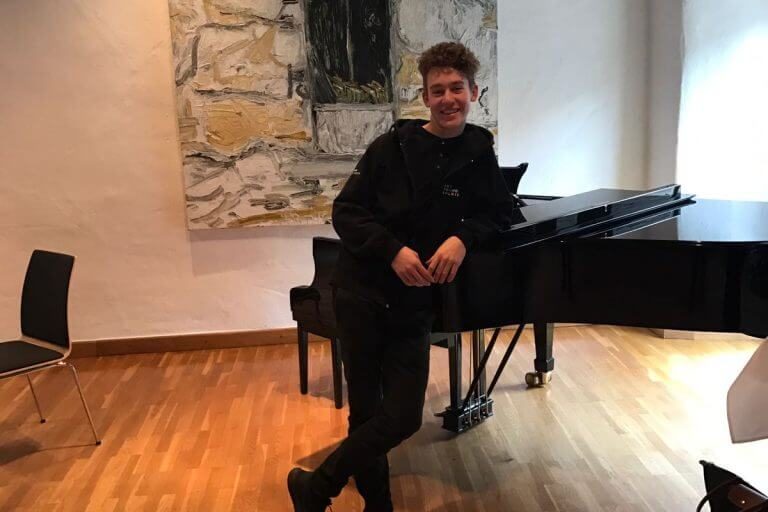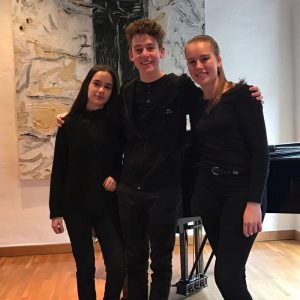Samuel Weilacher
Samuel has been playing cello since he was five years old. Since 2010 he has been taught by Joseph Hasten at the Tübingen Music School. In 2014 he won the first prize in the national competition Jugend Musiziert in the category “violin/cello” and the special prize of the Cello Academy Rutesheim. In 2015, Samuel won the first prize at the BW Jugend Musiziert in the category “piano and a string instrument”. Since September 2016, Samuel was a student of Rudolf Gleißner, former solo cellist of the RSO (Radio Symphony Orchestra) Stuttgart. Since May 2015, Samuel is a member of the LGT Young Soloists with several solo performances. In 2016, Samuel won first prize at BW Jugend Musiziert in the categories “Violoncello Solo” and “Piano Chamber Music”. Since October 2017, Samuel has been taught by Francis Gouton, solo cellist of the Staatsorchester Stuttgart and professor for cello at the MHS in Trossingen. He is the leader of the cello group in the Federal Youth Orchestra.


Samuel in the Interview

Why and since when do you play the cello?
I started playing cello when I was 5 years old. After listening to my big sister, who plays the violin, at a concert with the Tübingen Chamber Orchestra and seeing the cellos, I wanted to try it myself.
What fascinates you most about music and why?
I am very fascinated by joint and solo music making. This creates so many different soundscapes, in which one can immerse. Whether in the orchestra, the string quartet, other ensembles or as a soloist, it is always a special experience.
Which composer excites you the most and why?
I am very impressed by Dmitri Shostakovich’s works, because he writes a very profound music, which is also related to his biography. Especially the 5th Symphony or the 8th String Quartet in C Minor Op. 110 are overwhelming.
What are your future plans?
I intend to study cello with the goal of getting an orchestra position. In addition to the orchestra, of course chamber music is indispensable to me.
How did you start at the Quartetto Paganino?
As I was playing with Leo Esselson with the LGT Young Soloists and getting to know each other there, we wanted to play together in a quartet. When we were able to inspire Felicitas Frücht and Estelle Weber, my father organized the rehearsals together with Christoph Wyneken.
Why do you think the quartet is one of the most sophisticated music formations?
As the quartet demands a high concentration of all participants to create versatile sound colours, it is one of the most demanding music formations.
How do you all master this challenge together?
Knowing one’s own preparation of the works both on the instrument itself as well as the other voices and gaining an overview is a crucial point. Through intensive rehearsals we master this challenge.
Which piece from your previously learned repertoire do you like best, and why?
For me, the 8th String Quartet in C Minor Op. 110 is the one that most impressed me with its profound, versatile, sad but also light-hearted composition.
How do you imagine the future of QP?
Through our previous concerts with the QP and the rehearsals I look forward to a hopefully long-lasting interaction and thus the opportunity to get to know many works, explore and play.



